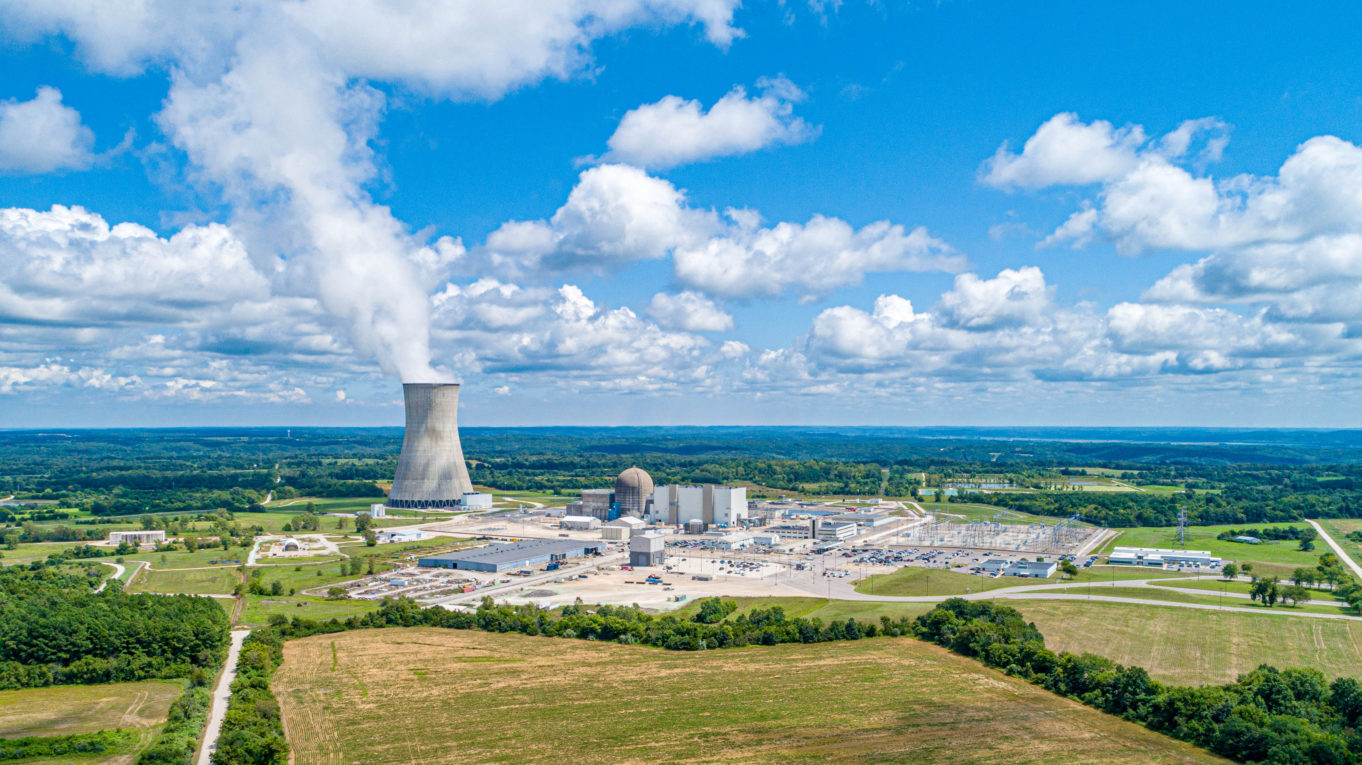FOR IMMEDIATE RELEASE
March 18, 2013
It’s not often that anti-nuclear activists concern themselves with a nuclear company’s financial troubles. But in the case of Entergy Nuclear Operations, which has seen consecutive negative financial reports that some of its reactors are losing money, activists are getting involved, pointing to a dangerous conflict between financial viability and nuclear safety.
Groups in three states are calling on the Nuclear Regulator Commission (NRC) to enforce its regulations, which require nuclear companies to be “financially qualified” to operate and maintain nuclear reactors safely. The groups filed a petition with the NRC this morning, calling on the agency to shut down two Entergy-owned atomic reactors in the Northeast, and investigate a third, because the company’s financial troubles compromise nuclear safety.
“Entergy’s financial problems must not become nuclear safety problems,” said Tim Judson, president of Citizens’ Awareness Network and author of the petition. “Unfortunately, that may already be happening, and the NRC must act now. Entergy is in this business to make a profit, and the pressure on the company to cut costs, delay maintenance, and drive these plants to the edge is just too great,” continued Judson. “NRC has ‘financial qualifications’ requirements for exactly this reason, and Entergy is no longer fit to operate these plants. NRC must shut these plants now so the smoking gun is not an evacuation siren.”
The petition states that Entergy is no longer financially qualified to operate the James A. FitzPatrick reactor near Oswego, New York on Lake Ontario and the Vermont Yankee reactor in Vernon, Vermont. The petition asks the NRC to investigate Entergy’s qualifications to operate the Pilgrim reactor in Plymouth, Massachusetts on Cape Cod Bay. Groups filing the petition are Citizens Awareness Network (Massachusetts, Vermont, and New York), Alliance for a Green Economy (New York), Pilgrim Watch (Massachusetts), and Vermont Citizens Action Network (Vermont).
Recent analyses by the financial services company UBS have stated that Entergy is losing money on FitzPatrick and Vermont Yankee and predicts that the company may close one or both of those reactors in the near future to improve its financial viability. UBS additionally reports that Pilgrim may also be losing money and at risk of closure. In February, UBS downgraded Entergy’s stock from “neutral” to “sell.”
Mary Lampert of Pilgrim Watch stated, “All antiques are expensive; you can’t run reactors on the cheap without jeopardizing public health, safety and property.”
The petition points to a litany of recent equipment failures and emergency shutdowns at the plants and asks the NRC to determine whether there is a connection between these failures and Entergy’s economic issues. For instance, FitzPatrick has seen an above average number of equipment problems in recent months, including condenser fouling and tube leaks, a transformer fire, and a problem with the turbine control system. Pilgrim also has seen a number of equipment failures. Its scram valve failed in March for the second time it failed in the last two months. The petition also points to a number of expensive upgrades the plants will need in coming years due to their age. Vermont Yankee and FitzPatrick will both need a new condenser, which could cost approximately $150 million each. Pilgrim’s spent fuel pool is at maximum capacity and dry cask storage is now required at a huge expense to Entergy. All three plants are Fukushima-style Mark I Boiling Water Reactors and will be required by the NRC to install potentially expensive upgrades in the next few years.
“The bad news is that there really is a conflict here between public safety and Entergy’s short-term bottom line for these particular nuclear reactors, since good maintenance of equipment and safety upgrades cost money,” said Jessica Azulay, organizer with the Syracuse-based Alliance for a Green Economy. “The good news is that there is no tension between what would be good for the public and what would be good for Entergy as a whole, since UBS says these plants are dragging down the whole fleet and that Entergy could put itself on much better economic footing by closing them. We believe it is in everyone’s interests for the NRC to force Entergy to cut its losses and to prevent the company from running these plants into the ground. If NRC will not enforce its regulations, we would hope Entergy shareholders would do the right thing here.”
Entergy’s financial issues are caused in part by lower market prices for electricity in New York, Vermont and Massachusetts than when the company acquired its Northeast nuclear fleet. At the time, Entergy relied on Power Purchase Agreements to show it would be financially qualified to operate the reactors. Entergy entered into Power Purchase Agreements with the plants’ original owners to guarantee a set price for Entergy’s electricity regardless of the market price. As detailed in the groups’ petition to the NRC, with the expiration of those agreements, Entergy is unable to turn a profit on these reactors and is no longer financially qualified to operate them.
“With Entergy’s systemic mismanagement of Vermont Yankee including the cooling tower collapse, delayed maintenance, groundwater contamination and its routine reneging on commitments it made when it purchased the reactor, the questions raised by UBS about the financial viability of Vermont Yankee and other reactors in Entergy’s fleet are of great concern,” said Deb Katz, executive director of CAN. “As a merchant plant with no ratebase to return to for financial security, Entergy’s bottom line overshadows Vermont Yankee’s operation. The unnerving tension between profit and safe operation of its aging reactor fleet requires NRC to act to protect the public health and safety.”
Whether or not NRC grants the petition, the possibility that Entergy may close these plants to save its own bottom line means that state and local policy makers need to put in place a transition plan that protects workers’ rights, provides for comprehensive decommissioning and isolation of radioactive waste, and encourages replacement with renewable energy sources.
Contact:
Tim Judson, Citizens Awareness Network: (212) 729-1169
Jessica Azulay, Alliance for a Green Economy: (315) 480-1515
Deb Katz, Citizens Awareness Network: (413) 339-5781
Mary Lampert, Pilgrim Watch: (781) 934-0389
Resources
Full text of the 2.206 Petition to NRC:
http://allianceforagreeneconomy.org/sites/default/files/2206_FitzPatrick-Pilgrim-VY.pdf
Petitioner Websites:
Citizens Awareness Network – www.nukebusters.org
Alliance for a Green Economy – www.agreenewyork.org
Vermont Citizens Awareness Network – www.vcitizen.org
Pilgrim Watch – www.pilgrimwatch.org

